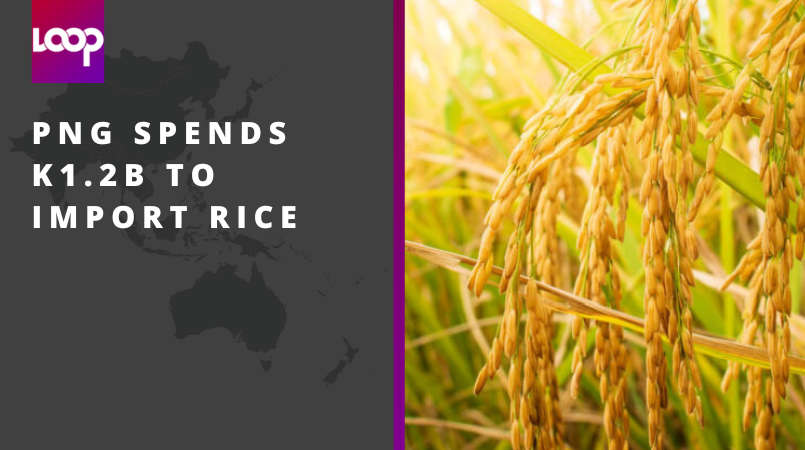
Papua New Guinea spends more than K1.2b to import 400,000 tonnes of rice while we produce around 4,800 tonnes in the country.
According to agriculture experts not much effort has been made to support rice farming on a commercial scale to meet the local demands and also for possible export.
Rice has now become the staple food for the majority of Papua New Guineans.
The rice growth cycle is only three months from planting to harvesting, and its durability for prolonged storage makes it a significant crop for strengthening food security in times of drought and other natural disasters.
In 2022, around 12,900 households were involved in rice farming, with 3,663 hectares of land currently under the control of smallholder rice farmers.
The Government will promote commercial-scale rice production through strategic interventions that include the mobilisation of customary land, labour and capital to transform the rice sector and help fulfil its huge potential.
The specific investment Programs under this sub-sector include:
- Large-scale Commercial Rice and Grains Farming Program;
- Smallholder Rice Farming Support Program; and
- Rice Milling and Downstream Processing Support Program.
Recently, Prime Minister James Marape announced that the government has granted initial approval for the establishment of a Rice Special Economic Zone in the country.
This groundbreaking development may include a joint venture between the State and Rigo Rice.
Marape underlined the government's commitment to kick start a substantial commercial rice industry within the next five years, with the goal of replacing the country's annual rice imports, valued at over K900 million.
Furthermore, the Prime Minister also disclosed that the government has taken the decision to commence negotiations for a joint venture between the State and Rigo Rice, which will focus on large-scale commercial rice farming, initially in Rigo, Central Province, Sepik Plains in East Sepik, and other regions across the country.
He emphasised the need to reduce the country's reliance on rice imports, which currently stands at over 400,000 tonnes annually.
“To achieve self-sufficiency, it is estimated that more than 100,000 hectares of rice need to be cultivated" Prime Minister Marape said.
“The government aims to realise this through a joint venture with Rigo Rice, commencing with the development of 6,000 hectares of unused State land in Rigo before expanding to other regions, including Central Province, the Sepik Plains, and other parts of the nation.
"This initiative aligns with our government's focus on import replacement, wealth creation for our citizens, and the generation of numerous employment opportunities for our people.”
Currently, PNG imports rice from China US$54.8m (K204.3m), Thailand US$28.8m (K107.4m), Chinese Taipei US$19.8m (K73.86m), India US$18.2m (K67.8m) and Burma US$1.45m (K5.4m).
